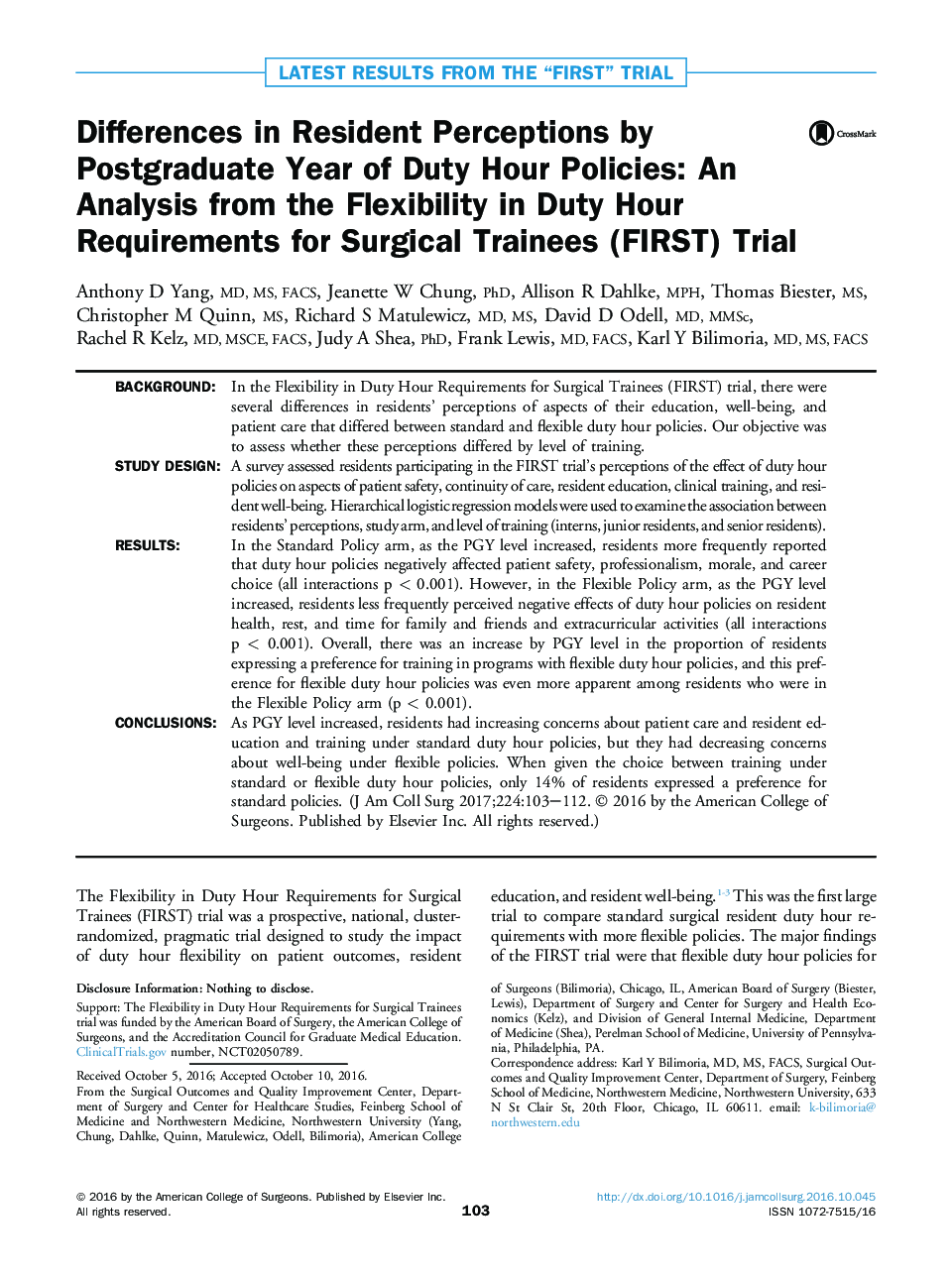| کد مقاله | کد نشریه | سال انتشار | مقاله انگلیسی | نسخه تمام متن |
|---|---|---|---|---|
| 5733161 | 1612195 | 2017 | 10 صفحه PDF | دانلود رایگان |

BackgroundIn the Flexibility in Duty Hour Requirements for Surgical Trainees (FIRST) trial, there were several differences in residents' perceptions of aspects of their education, well-being, and patient care that differed between standard and flexible duty hour policies. Our objective was to assess whether these perceptions differed by level of training.Study DesignA survey assessed residents participating in the FIRST trial's perceptions of the effect of duty hour policies on aspects of patient safety, continuity of care, resident education, clinical training, and resident well-being. Hierarchical logistic regression models were used to examine the association between residents' perceptions, study arm, and level of training (interns, junior residents, and senior residents).ResultsIn the Standard Policy arm, as the PGY level increased, residents more frequently reported that duty hour policies negatively affected patient safety, professionalism, morale, and career choice (all interactions p < 0.001). However, in the Flexible Policy arm, as the PGY level increased, residents less frequently perceived negative effects of duty hour policies on resident health, rest, and time for family and friends and extracurricular activities (all interactions p < 0.001). Overall, there was an increase by PGY level in the proportion of residents expressing a preference for training in programs with flexible duty hour policies, and this preference for flexible duty hour policies was even more apparent among residents who were in the Flexible Policy arm (p < 0.001).ConclusionsAs PGY level increased, residents had increasing concerns about patient care and resident education and training under standard duty hour policies, but they had decreasing concerns about well-being under flexible policies. When given the choice between training under standard or flexible duty hour policies, only 14% of residents expressed a preference for standard policies.
Journal: Journal of the American College of Surgeons - Volume 224, Issue 2, February 2017, Pages 103-112